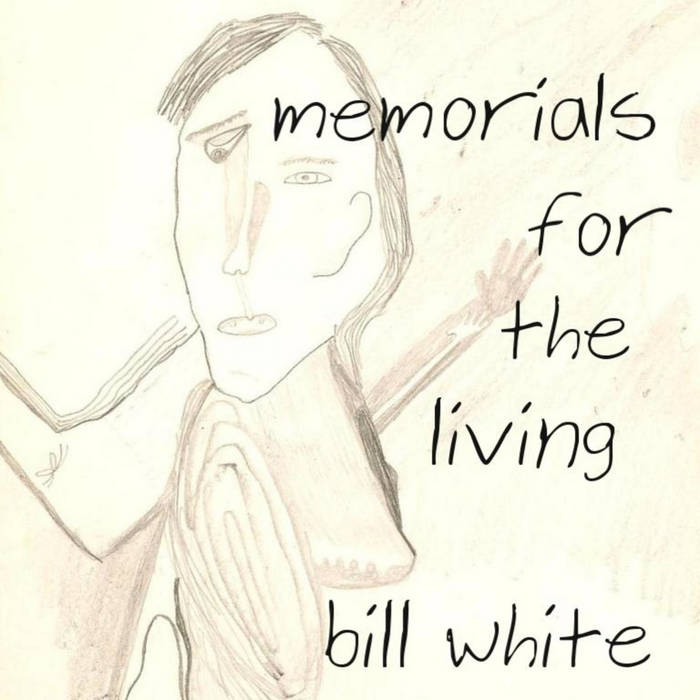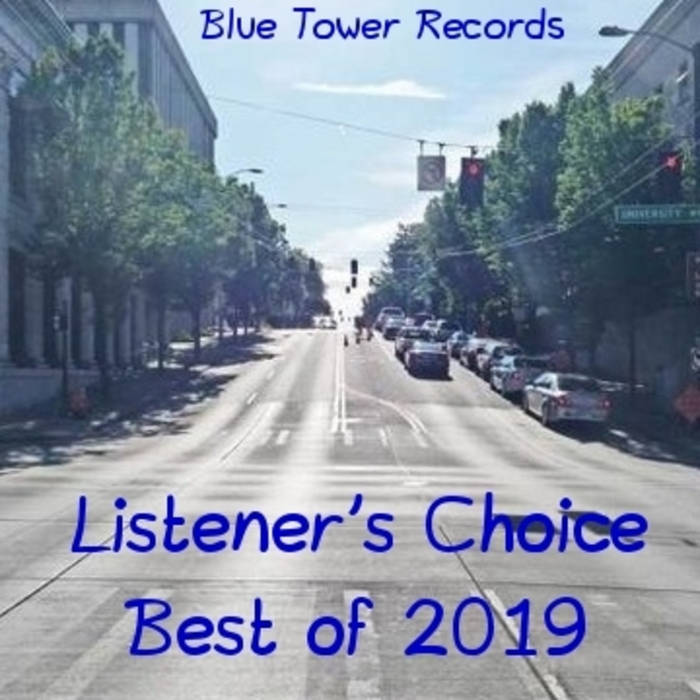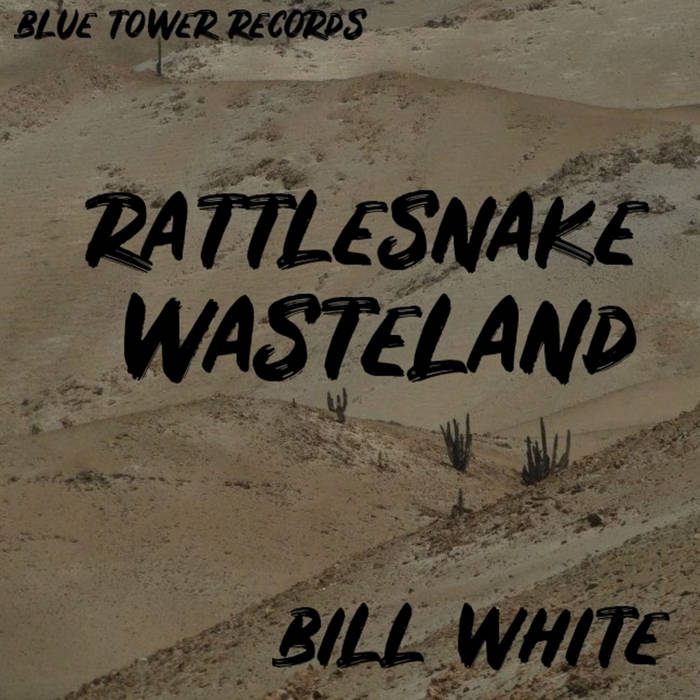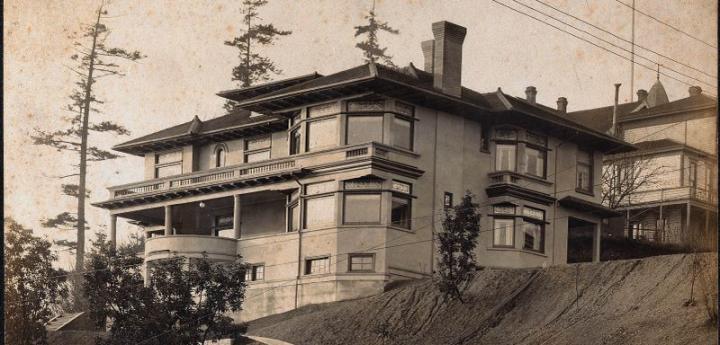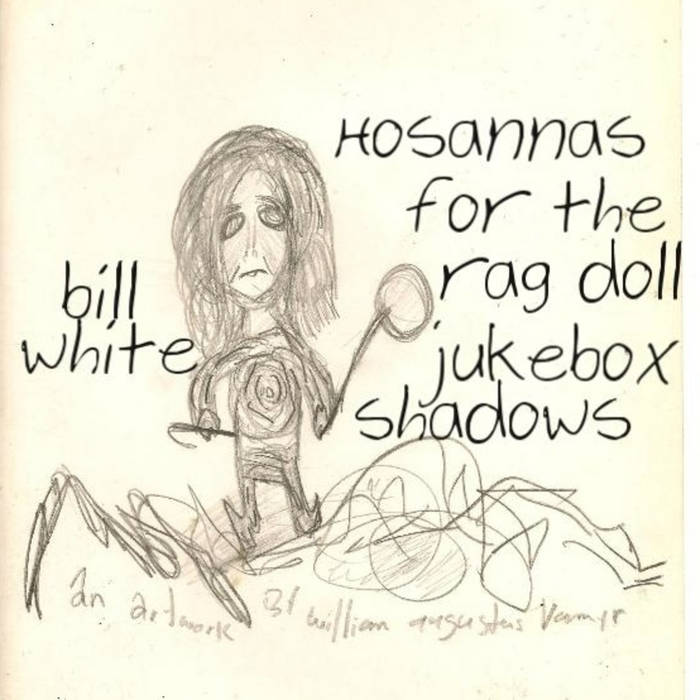
Links for free streaming and or downloads
https://billwhite.bandcamp.com/album/hosannas-for-the-rag-doll-jukebox-shadows
https://billwhite.bandcamp.com/album/memorials-for-the-living
There comes a time when nostalgia is no longer nostalgia. It is history, part of the chronicles, sometimes autobiography. When the thirty year old regresses into college day memories, it is nostalgic self indulgence. Thirty years later it is self examination, and still later, dreams.
I am watching John Cassavetes on the set of his final film. I am looking at worlds once thought to be eternal, now folded into unread archives. Who will walk in these footprints left by ghosts ? Does the work of one century have a place in the next? Here is a picture of a woman smoking. In time, someone will look at that picture and will not know what is the object in her mouth. The film will lose all its meaning, and the exploration of what is required of people to learn what it means to love one another will have been long abandoned, and this relic, which breaks if wound through antique projectors, will restart unknown.
Voices tell me that these songs sound like songs I have recently written. and I protest that they are songs I have been listening to over the past fifty years. I am not singing them now because I am nostalgic for the days that I heard them for the first time. I hate nostalgia. It sickens me. I hear Andy Williams sing Moon River and it is more depressing than Reverend Gary Davis when he sings Death Aunt Got No Mercy. Please don’t remind me of my mother watching prime time television in the sixties when the last time I saw her was in a hospice room. Nostalgia hurts more than the loneliness of a survivors guilt.
I used to cover every song I liked. The last one I bothered to learn was Ship to Wreck by Florence and the Machine. A few years before that, after the death of Merle Haggard, I learned Kern River. The last period of absorbing the work of others was more than fifteen years ago, when I was deep into the secret worlds of post-Lilith female songwriters Dar Williams, Natalie Imbroglio, Dido, Nelly Furtado, and latter day Tori Amos. Before that I learned all the songs of my top three Britpop bands…Suede Blur, and Pulp. I am not nostalgic about any of these bands. When I play then today, on my guitar or on my computer, they are not significant of any personal era. These are not songs of my returning, but songs marking certain crests in the evolution of rock and roll.
I learned to play songs from songbooks. My first was Elvis Presley, then Bob Dylan although his songbook was useless as most of the songs were in piano keys that a novice guitarist could not play properly. Later, some major magazine put out a collection of popular songs from the sixties, most of which were easy to play, and even the difficult ones, such as Alfie, were within my reach. I learned a lot about songwriting from the sheet music for The Bands second album and Bob Dylan’s Self Portrait In the SC, I learned everything from Elvis Costello up through Punch the Clock. By that time, I was usually able to figure out how to play the songs without reference to the sheet music.
I think the idea that nostalgia is a province of the elderly is a fallacy. Young adults attending a 10 year high school reunion try to impress their old schoolmates with how young they still look, knowing at last after a decade of youthful indulgence that they are no longer teenagers. These are the nostalgic ones. Thirty year old adolescents feeling out of place in the clubs where they still think their best times were had. At thirty, one is still young enough to long for their 18 year old self, and when that final rupture with the ghosts of their past hurls them into an adulthood without return, the nostalgia cord begins to unravel. by the time they pass through middle age into retirement, they realize at last they will never be young again, and the things that were once the source of their nostalgias no longer exist.
A man and his five surviving friends from the war in the South Pacific stay in touch for a decade or so after the end of the war. They dub themselves the Bastardly Six and continue to define themselves as such until the last of them is dead. But in their latter years as each in turn faces his own private confrontation with eternity, they realize the Bastardly Six exists only in their minds. And they revisit the days on the warship as one revisits a well worn, often read book. the Last of the Bastard Six decides to write a book about his war experiences, believing that his descendants will eagerly read it to learn more about their family history, that he himself will earn a kind of immortality in the chronicling of his own memories. but nobody reads the book. Nobody even wants it among their belongings. And so the legend of the Bastardly Six becomes a lost chapter in nobody’s history.
Some say the elderly retire from reality to live in their dreams of the past, and while there is an element of truth in this, the full measure of their twilight existence is misunderstood. Unlike the young nostalgic, the elderly know there is no past to which they can return. After a certain age, nothing remains of the world they have lived through. But their minds contain the entire epic that was their life, and any chapter of it is immediately accessible. They watch their life as if it is a movie they acted in, but have never seen. There is little if any nostalgia attached to it because nostalgia would be unbearable. It is the distance that makes reflection and self examination possible. Once everything is lost, there is no song of returning. At the 50th high school reunion, it is a not uncommon for most to admit to themselves and to each other that this will be the last time they will all be together in this way.
In the late autumn of 1974, John Cassavetes’ A Woman Under the Influence opened at the luxurious Fifth Avenue Theater in Seattle, Washington. I saw it every day of its brief run and on the last day brought a tape recorder with me and recorded the sound so I could listen to it in my apartment after it was gone. I attended the matinees, and no more than 25 people filled the 2000 seats at any given time. These were the last days of the theatre where The Sound of Music had played for two years straight and I had seen El Cid and Cleopatra in my pre adolescence. Within four years, it would close as a movie theatre and eventually re open as a live venue for musical theatre. In 2002, I took a job ushering Les Miserables just so I could be inside the building once more. That was an action of unabashed nostalgia, one that I don’t regret,
Not many people liked the movies Cassavetes made, but I had been a fan since Faces, his second picture, was released in 1968. My love for his work was vindicated in the late SC, when a retrospective at the Harvard Film Archive drew sellout crowds. It was thrilling to sit with 200 other people who shared my love for the film. I thought Cassavetes was finally being recognized for his brilliant work. I didn’t want to go back to the lonely Fifth Avenue theatre to see it again. I looked forward to seeing it several times in the future, each time with a larger audience. And I did. But these times passed as well. today I can watch the Criterion DVD by myself and mourn the passing, not only of the director, but of the world in which he created his films, films he believed in although audiences were sparse, because he knew what he was doing was real. Throughout his career, the one thing that remained constant in his work was an insistence upon the necessity of people learning how to love one another.
When I watch his movies today, as well as those of other brilliant film, directors from those times….. Sam Peckinpah, Robert Cresson, Michelangelo Antonioni, Bernardo Bertolucci, Luis Bunuel…….I feel a pain deep in my heart and my guts for the passing of an unfulfilled art form, cut off in its prime by assassin producers and moronic directors, vain actors and actresses, bitter screenwriters. avaricious investors, and entertainment craving audiences. Jean Luc Godard was a little premature when he, in 1969, declared the End of Cinema, but here in 2019 we are many years past its death and maybe even the rotting of its corpse.
The same can be said of popular music. If the sixties gave us anything, it was a splendidly diverse banquet of Top 40 music for AM radio. Frank Sinatra, Elvis Presley, James Brown, Herb Alpert, Dave Brubeck, Johnny Cash, Tommy Roe, The Supremes, Tony Bennett, Tom Jones, Petula Clark, Bob Dylan, The Doors, Janis Joplin, Peter Paul and Mary…just to name a few acts that could be found on the weekly playlists. Today there is no music industry, just a computer that spits out variations on the same data year after year. Am I nostalgic for the old days? No, but I still love all that music that came out between 12.07,1941 and 09.11.2001.
And that is why, after three months of intensive song writing and recording which this year yielded 90 new songs, I spend October winding down by recording twenty or thirty cover songs. I don’t do it out of nostalgia, but to remind myself of what I like in a song, in all those hundreds of songs written by people serious about writing songs. And I am reminded of why we write these songs, and what people get out of listening to them. Even though there is a very thin market for songs that continue to expand the language of popular music, there are more people than ever practicing the art. You just have not heard of most of them. Some, for sure. And everybody has their favorites, but there is no cover of LIFE magazine that everybody sees every time they walk into any store…no new faces on the cover to excite the world about a new singer named Bruce Springsteen, a new play called Who’s Afraid of Virginia Woolf, a new movie called Apocalypse Now. So we live in a time of unparalleled creativity about which we know little o nothing. And those who continue to labor in such a dead zone of complacent disinterest try to maintain their connections to the work done in the past, when the whole world was indeed watching, or listening, and caring.
So once I year I put together an album or two of covers. tis year I am simply adding tracks to last years pair of cover albums, one featuring the songs of those still living, the other of those who have passed on. And the albums can be downloaded free of charge…or you can simply tune in and listen to the tracks that you think you might like. Its not about nostalgia. Its about the continuum. And we shall continue. Even if we are nothing but falling trees in an empty forest.
Links for free streaming and or downloads
https://billwhite.bandcamp.com/album/hosannas-for-the-rag-doll-jukebox-shadows
https://billwhite.bandcamp.com/album/memorials-for-the-living
